CCYP 2020 VOTER GUIDE: STATE REPRESENTATIVE CANDIDATES
Know Your Candidates!
As a service to our members and the Cape Cod community at large, CCYP has compiled a series of non-partisan VOTER GUIDES for select local races in the 2020 General Election.
For this first guide, we invited candidates running for the State Representative offices serving the Cape & Islands to answer a short questionnaire. The candidates' unedited responses are presented below, along with their campaign website and social media handles. All candidates are included for the Barnstable County District races (Districts 1-5), and for the Barnstable-Nantucket-Dukes District, even if they are running unopposed.
Some candidates did not respond to our questionnaire; their names, information, and campaign websites are provided for reference.
NOTE: as a 501(c)3 nonprofit, CCYP is nonpartisan and does not endorse any candidate or political party. We are providing this information solely for the purposes of voter engagement and education.
Need more election details? Unsure what district you're in? See our Voter Resources section below.
Ready to dive in? Scroll down for candidate responses.
Voter Resources
MA Voter Information Search. What's my district? Where do I go to vote? What will my ballot look like? Use this easy search engine and arrive at the polls prepared.
Find Your Early Voting Location! In-person early Voting is available Oct. 17 to 30.
Early Voting by Mail. Oct. 28 is the last day to apply to vote by mail in the General Election. Due to the COVID-19 pandemic, this option is available for ALL voters and you do not need an excuse to vote by mail this year! Visit the State Secretary's website to learn more or contact your Town Clerk to apply.
State Ballot Questions. A series of Ballot Questions will appear on all ballots statewide. Read a summary on the State's website.
League of Women Voters Personalized Voter Guide. Enter your address into the Vote411 search to see candidates and preview your ballot.
Learn More about Policy and Civic Engagement Opportunities with CCYP. Join the CCYP Public Policy Committee, learn about Town Board/Committee/Commission vacancies, and more.
1ST BARNSTABLE DISTRICT
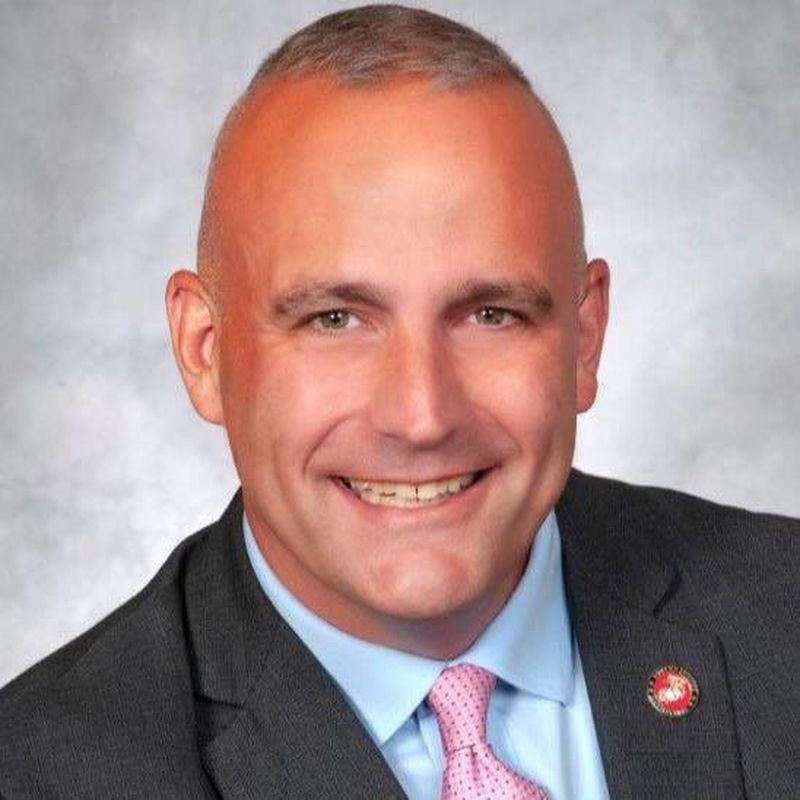
Timothy Whelan (R - Incumbent)
Website: www.timwhelan.org
Facebook: @votewhelan
Twitter: @TRWhelan
1. CAPE COD’S FUTURE. What are the three (3) most pressing issues facing Cape Cod today, and how would you address them if elected?
1. The addiction crisis 2. Wastewater 3. Affordable housing
2. ECONOMIC AND WORKFORCE DEVELOPMENT. What is the single biggest opportunity for economic and workforce development on Cape Cod, and how would you leverage it if elected?
Cape Cod cannot improve our economy until we do two things: increase the stock of workforce housing and solve our wastewater crisis. I am already working on both. My office helped secure $4 mil for the 69 unit Yarmouth Commons project, $1.6 million for 30 units of affordable rental units to be built in Brewster, and $1 million toward the Project FORWARD housing in Dennis. On the wastewater front, I am very active with Dennis-Harwich-Yarmouth as they pursue a tri-town solution. Governor Baker recently signed my legislation to authorize this tri-town collaborative, which will come before Town Meeting voters in the Spring, and I have also secured a $1 mil bond authorization to get the partnership up and running. We are very engaged here.
3. CIVIC ENGAGEMENT. If elected, what specific actions would you take to bring our community’s youth, working age young adults, and young families to the table in regional decision- and policy-making processes? How would you encourage and engage the young people of our community to take on leadership roles with local issues, like economic and workforce development?
I think the first thing we must do is to let our youth and young adults really believe they have a future here on Cape Cod. They need to feel invested in our region's future and that begins by setting the table so they know they can find work and housing right here on the Cape, raise their families here, and grow old right here. That circles back to the earlier question with a focus on affordable workforce housing sprinkled with creating more good-paying jobs in our year round economy.
4. CHALLENGES FOR YOUNG RESIDENTS. CCYP has consistently found through our independent research that young workers on Cape Cod face a number of significant barriers to successfully live and work in the region. The top three challenges that have been identified are: unaffordable and insufficient housing options;a lack of jobs that pay a living wage for our region (i.e., median income for Cape Cod is lower than the state overall, while cost of living is higher);and a lack of investment in infrastructure and services that support year-round quality of life for young people and families (i.e., child care, reliable internet as a public utility, investment in schools/public spaces). What resources or solutions would you propose and/or advocate for to help support young working age adults in these key areas of need?
As pointed out earlier, we are making good progress in the 1st Barnstable District with the many millions of dollars in state funding I've been able to bring here toward affordable housing production, but we have more to do in this area. Our transportation infrastructure and lack of municipal sewer lines is also holding back our efforts to recruit year-round employers. We've been fortunate to get companies like Sencorp White into the 1st Barnstable, but until we get municipal sewer lines running through our district it will remain an uphill battle. Fortunately, we are moving in the right direction. I was proud to join with my colleagues in securing a $1 million Early Education and Out of School Time Capital Fund Facilities Improvement grant award for the YMCA to develop a child care site in Hyannis which will hold five classrooms serving 65 infants and toddlers. Our work here is not done yet and we continue discussions with other local service providers to expand access to childcare for our young workforce. I've been in their shoes myself, when my wife and I both worked full-time when our daughters were young. This is a priority.
5. AGE-DIVERSE COMMUNITIES. Massachusetts has one of the highest median ages in the country, with Cape Cod/Barnstable County one of the fastest aging regions in the State. The media narrative both locally and nationally is that “young people are fleeing Cape Cod.” However, the demographic changes we are seeing regionally - and their root causes - are much more complex than this. Describe your role as a potential elected official in helping to reshape the Cape’s narrative and cast a vision for our region that attracts and keeps young people on the Cape?If elected, would you advocate for a comprehensive, regional marketing strategy to attract and keep young people on the Cape as other New England states (VT, NH, Maine) have done? What else would you do to ensure that our region prioritizes age-diverse communities?
I believe, as mentioned earlier, that we must start with expanding housing and employment opportunities so young people, right here in our own community, feel their future lies right here on the Cape. My own two daughters are among those young people who have left the Cape, in their case for better paying jobs in their career fields. I grew up in a neighborhood where my grandparents lived just down the street. They brought such richness into my life and I know I won't have that with my own grandchildren. It breaks my heart and I'm fighting hard to set the table for better days ahead. The wastewater and transportation pieces, along with further extending fiber, high speed internet, and wi-fi for the digital age is going to be vastly more important than any marketing strategy. If we build it, they will come. But first and foremost, we have to build it. Give younger people a reason to be here.
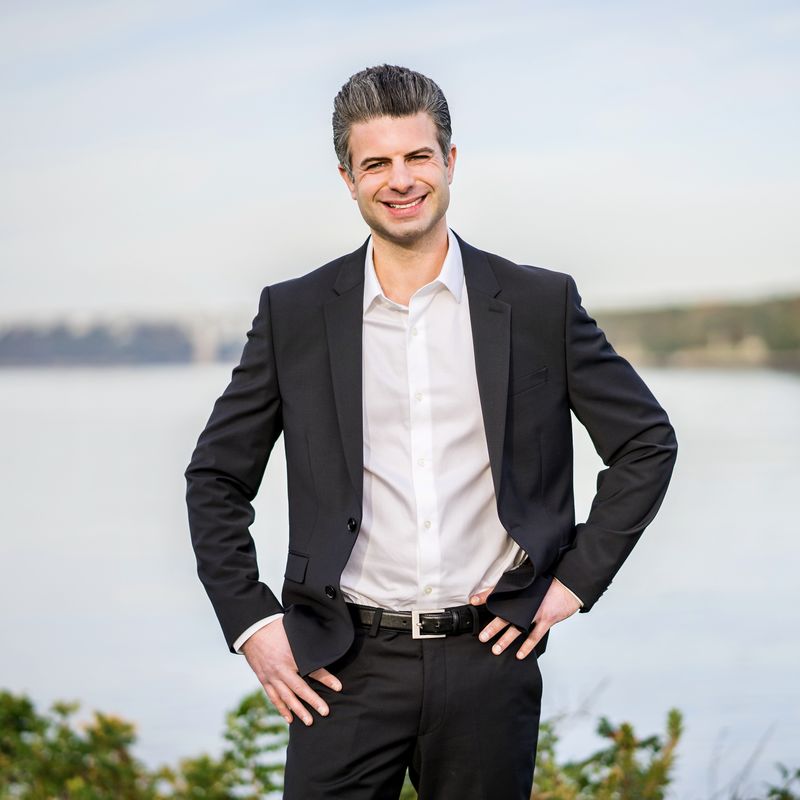
Josh Mason (D)
Website: www.electjoshmason.com
Facebook: https://www.facebook.com/elect...
Twitter: @thejoshmason
Instagram: @joshmason2020
1. CAPE COD’S FUTURE. What are the three (3) most pressing issues facing Cape Cod today, and how would you address them if elected?
1. Economy - I propose a merger between Cape Cod Community College and an off-Cape, nationally accredited University. One which would attract students from all over the world. Not only would the campus expansion bring construction jobs during the build and numerous service and supportive jobs once the university is up-and-running, the addition of a full-time year-round student body would stimulate local commerce, increasing demand for businesses to stay open all year thereby contributing the local economy. I also want to expand the partnership between Cape Cod Healthcare and Brigham & Women’s hospital further. I want to make Cape Cod Hospital a teaching hospital by creating a Medical Program built on a collaboration between the Cape Cod Healthcare system, Brigham & Women’s, and our University. Finally, I plan to craft a fund focused entirely on providing for the needs of our Cape Cod communities. A significant part of the program would be financed through two revenue streams: 1. A taxation on non-resident second homes and 2. A bridge toll whereby non-residents would be charged $3.00 while locals and business owners would pay nothing. Initial studies estimate, for the toll alone, annual totals would reach well over $10 million. This, as well as the income from the tax, would be used to strengthen our education system by raising teacher salaries, hiring more teacher aides, adding social workers and support staff. We will then expand the affordable and middle income housing sector, and repeal the rent control zoning act to bring down the cost of living for median and below median income families. We will also use the funding to assist small businesses with things like debt forgiveness and low-interest loans so they can re-invest the revenue and expand operations. Finally, we will assist with financing local infrastructure projects around the Cape and Islands that get ignored by the state, it’s time that our needs are met by putting Cape Cod First. 2. Housing - With housing, a majority of our wealthiest homeowners are not full-time or even part-time residents. Their houses sit vacant for most of the year while the need for year-round housing continues to grow and locals are pushed off-Cape. The single most powerful legislation we can pass to help is implementation of an added tax to non-resident second-home owners and investment properties. This small tax bump will provide a revenue stream which will be reinvested into housing priorities for our year-round working residents. As I stated above, we must repeal a 1994 decision to ban rent controlled zoning to make the Cape more affordable for young families and below to median income individuals. Lastly, we need to implement more rent to own programs to allow individuals who are below median incomes to build equity towards the purchase of a home. Housing is a basic human right, we need to ensure all Cape Codders have adequate housing for the betterment of out communities. 3. Public Education - Our teachers are under-compensated, and many have taken second jobs to support themselves and their families. We need to cut top-heavy administration salaries and put that capital into upping teacher salaries and providing them with more teacher-aides. One unnecessary administration position can provide up to thee part-time aides. In addition the school system should be able to provide our teachers with the materials and resources needed for their students to succeed rather than our teachers paying for supplies out of pocket. Nutrition is fuel to an active and engaged brain, too many students go hungry. Most students do not have an understanding of healthy eating and education should not be limited to books. School Gardens ought to be implemented. Results of a 2015 study on School Gardens in Barnstable were not promising solely because of a lack of funds. I will change this. I will also push to include cooking courses led by Nutritionists for the entire family to experience. As the Cape’s FLAVORx Program showed, a healthy diet can actually save money. We also must help both our parents and children at an early age. Childcare programs are a huge problem with implementing due to the cost. Infant-care for one child in Massachusetts is presently $17,062, which is $6,360 more than tuition for a four-year state college. I want to fix this. I want to bring children into our senior and community centers. This will not only cut expenses drastically, it will help both the toddlers and senior citizens. Numerous studies of this kind of arrangement have shown children make significant gains in social and personal development and seniors exhibited delayed mental decline, lower blood pressure, and reduced risk of disease and death. I also want to tackle the mental-health and substance-use challenges in our communities. The Cape needs a premiere alternative school with a mental-health and rehabilitative substance-use program; a sober learning environment that includes cognitive behavioural therapy, education, self-esteem building, and a clear path to recovery.
2. ECONOMIC AND WORKFORCE DEVELOPMENT. What is the single biggest opportunity for economic and workforce development on Cape Cod, and how would you leverage it if elected?
I laid out my economic plan above and strongly feel that using our year round constants, healthcare and education to be the foundation. We can create opportunities and sustainability through more forward thinking policies and initiatives, we have the bones in place, and we must build up from there or risk a continuing decline.
3. CIVIC ENGAGEMENT. If elected, what specific actions would you take to bring our community’s youth, working age young adults, and young families to the table in regional decision- and policy-making processes? How would you encourage and engage the young people of our community to take on leadership roles with local issues, like economic and workforce development?
We need to implement more intergenerational programs within our public school system that bridge our youth and senior services. I have participated in the model UN program run by the Dennis-Yarmouth high school and the Yarmouth senior center. It introduces two generations in a divergent setting where both younger and older individuals have to work together to achieve one common goal. Though this program people of all age ranges tend to find that they have more in common than initially believed. Certainly the inception of more student govenerment programs and young political organizations such as YDMA will have a chapter on the cape. It’s important to get our youth engaged early with civics and government programs outside of the classroom to understand the political process. More public service programs should be a requirement as well so that our youth can harness a better understanding of our communities and we can all work together and learn about our communities residents. We will also implement programs with our college that incentivize good grades and extra curricular to take early college classes and obtain credits. Keeping our youth engaged and on Cape will be vital to the sustainability and survivability of the Cape and Islands. Plugging our school system into the college and piping our college into our local economy will help to teach and condition a local workforce of home grown Cape Codders who will also have a comprehensive understanding about what our history is and how sacred and precious our environment is.
4. CHALLENGES FOR YOUNG RESIDENTS. CCYP has consistently found through our independent research that young workers on Cape Cod face a number of significant barriers to successfully live and work in the region. The top three challenges that have been identified are: unaffordable and insufficient housing options;a lack of jobs that pay a living wage for our region (i.e., median income for Cape Cod is lower than the state overall, while cost of living is higher); and a lack of investment in infrastructure and services that support year-round quality of life for young people and families (i.e., child care, reliable internet as a public utility, investment in schools/public spaces). What resources or solutions would you propose and/or advocate for to help support young working age adults in these key areas of need?
As cited above, within our economic, education, and housing plans that I laid out above we’ve addressed each item with potential solutions. I will add that with respect to infastructure, we will add more bandwidth and focus on 5g technologies that move us into a more wireless world. We also hope to re-open and expand maternity care services, pediatric services, and implement a Planned Parenthood facility on Cape to make women’s healthcare affordable and accessible.
5. AGE-DIVERSE COMMUNITIES. Massachusetts has one of the highest median ages in the country, with Cape Cod/Barnstable County one of the fastest aging regions in the State. The media narrative both locally and nationally is that “young people are fleeing Cape Cod.” However, the demographic changes we are seeing regionally - and their root causes - are much more complex than this. Describe your role as a potential elected official in helping to reshape the Cape’s narrative and cast a vision for our region that attracts and keeps young people on the Cape?If elected, would you advocate for a comprehensive, regional marketing strategy to attract and keep young people on the Cape as other New England states (VT, NH, Maine) have done? What else would you do to ensure that our region prioritizes age-diverse communities?
Youth retention is a critical priority, a Cape Cod without youth is a Cape Cod without a future. We all know that our educational enrollments are down 8% a year and our public education system and community college is underfunded. As I stated in my economic agenda, merging a partner ship between 4C’s and an accredited university over the bridge is the answer to sustainable educational opportunity. The state is sitting on around 3 billion dollars that we’re appropriated for a failed UMass project and the Cape is ripe for it. Marketing a Cape Cod based university on a global scale would attract people from all over and the allure to go to college in a tourist and ocean based destination has global appeal. Pepperdine and Miami University have also used their surroundings to attract people in addition to their academic prowess. I believe that unifying our public education system with a refreshed collegiate program and partnering up with businesses across the cape will inspire confidence and create economic stimulus and growth. Our population is aging in place and home are and health aid jobs will be replete as we move forward, but we must make our housing affordable and provide training opportunities to our youth and locals.
2ND BARNSTABLE DISTRICT
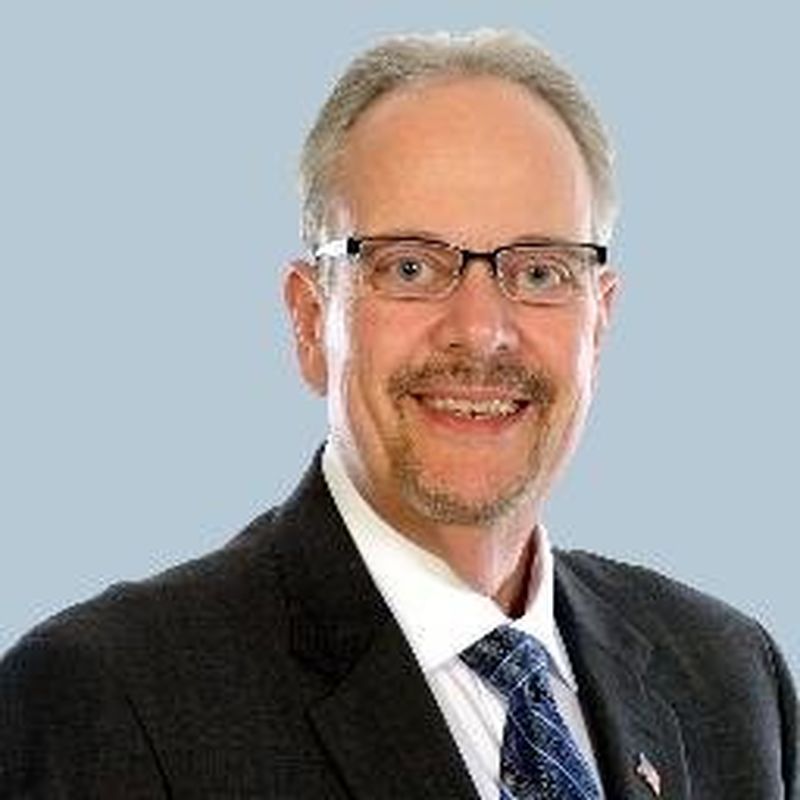
Will Crocker (R - Incumbent)
Website: www.electwillcrocker.com
Facebook: @StateRepWillCrocker
Instagram: @staterepwillcrocker
Twitter: @WillCrockerJr
1. CAPE COD’S FUTURE. What are the three (3) most pressing issues facing Cape Cod today, and how would you address them if elected?
Housing: I would continue to advocate for more housing opportunities for those entering the workforce. I call it “sustainable housing.” We need to be able to attract workers who commute to Cape Cod from over the bridge (because they are unable to find housing they can afford here). We need to create housing which would allow them to put down roots or keep their roots in the community. I sit on the Joint Committee on Housing and have supported the Governor’s Housing Choice Initiative since its inception. Addiction: The issue of opiate addiction is also critical. I have chosen to attack it from a younger prospective. I am working on a permanent funding source for opiate prevention programs in schools and non-profits. We need to educate our youngest citizens about the dangers of these drugs. COVID-19: We need to continue to support our towns, restaurants, small business owners and those most hurt by the pandemic and find and maintain funding sources to strengthen these economies. People who had their lives turned upside down, their business reduced, lost employment and/or have seen their wages reduced.
2. ECONOMIC AND WORKFORCE DEVELOPMENT. What is the single biggest opportunity for economic and workforce development on Cape Cod, and how would you leverage it if elected?
Without a doubt, it is adequate housing. Housing that will allow those just starting out to thrive here and raise their families here. The Housing Choice Initiative will allow for that housing to move another step forward by lowering the thresholds for approval of those projects from two thirds down to a majority vote. Too many times great projects for this type of housing have been scrapped in our communities because they failed to get the needed votes. I will continue to support the efforts of the governor and his project.
3. CIVIC ENGAGEMENT. If elected, what specific actions would you take to bring our community’s youth, working age young adults, and young families to the table in regional decision- and policy-making processes? How would you encourage and engage the young people of our community to take on leadership roles with local issues, like economic and workforce development?
In my second term, I initiated a Youth Advisory Commission. It is made up of high school students from the public and private schools in Barnstable and Yarmouth. They are engaged in legislative and civic issues both locally and at the statehouse. From voter registration drives to specific bills. We talk about their perspectives as they enter into adulthood though our monthly meetings. Many continue their civic engagement into their college years. As the members of the commission graduate, I encourage them to continue to be active either through higher education or as an active member of the community. This commission gives them the opportunity to develop their skills and knowledge to be active citizens. In my first term, I was a member of the House/Senate Conference Committee on the Civics Engagement Bill that opened the way for more instruction in secondary schools and created the Civics Trust Fund that will allow for students and teachers to further explore their government through in-class and out-of-class projects. I also helped the JFK Hyannis Museum in their efforts to obtain funding for their civics education programs.
4. CHALLENGES FOR YOUNG RESIDENTS. CCYP has consistently found through our independent research that young workers on Cape Cod face a number of significant barriers to successfully live and work in the region. The top three challenges that have been identified are: unaffordable and insufficient housing options;a lack of jobs that pay a living wage for our region (i.e., median income for Cape Cod is lower than the state overall, while cost of living is higher);and a lack of investment in infrastructure and services that support year-round quality of life for young people and families (i.e., child care, reliable internet as a public utility, investment in schools/public spaces). What resources or solutions would you propose and/or advocate for to help support young working age adults in these key areas of need?
We need to continue to look in other directions when it comes to housing. Accessory housing is one way. Towns need to streamline their processes for this type of housing. The in-law apartment that a homeowner may have attached to a three or four bedroom house should be allowed to become the property-owner’s permanent home. This could allow a family to move in, establish roots, and thrive in our community. It would also allow the property-owner to collect rent or maybe enter into a rent to own agreement. We need to look at blighted properties in our communities and work to construct housing units. I was able to tour the Housing Assistance Corporation project on Ridgewood Avenue in Hyannis. There is a perfect example of taking a blighted and dangerous property and turn it into housing that is so badly need in the downtown Hyannis area. One way to lessen the difference between income and expenses for people lies, I believe, with the employer and government. Lowering the cost of doing business in the state through opportunities like tax credits and minority hiring incentives can work toward making that wage and living gap smaller. This can also be applied to affordable healthcare for families. Investment in a reliable internet is already being done through Open Cape. We just need to complete the last mile, particularly in the area of Hyannis. Schools are something that may need further exploration in terms of how they will be built, keeping in mind any long-term complications regarding the coronavirus. Public space projects need to be environmentally and culturally viable and also keep in mind the needs of the towns in terms of access, maintenance, and affordability.
5. AGE-DIVERSE COMMUNITIES. Massachusetts has one of the highest median ages in the country, with Cape Cod/Barnstable County one of the fastest aging regions in the State. The media narrative both locally and nationally is that “young people are fleeing Cape Cod.” However, the demographic changes we are seeing regionally - and their root causes - are much more complex than this. Describe your role as a potential elected official in helping to reshape the Cape’s narrative and cast a vision for our region that attracts and keeps young people on the Cape?If elected, would you advocate for a comprehensive, regional marketing strategy to attract and keep young people on the Cape as other New England states (VT, NH, Maine) have done? What else would you do to ensure that our region prioritizes age-diverse communities?
We need to balance the past with the future in this regard. The Iconic beauty of the land and sea brought many people to live here in first place. That needs to be kept in mind as we move forward to market this as a place to live and work. We to entice businesses to take the opportunity to move to Cape Cod. Bring employment opportunities here and encourage the existing workforce to work for them. Yes, Cape is a wonderful place to visit on your vacation, but employers need to know that there already is a workforce here that needs the ability to have a job and other benefits to stay here and continue their lives here. Additionally, I would advocate for congregate housing which combines new graduates and senior citizens. These two generations of people have an opportunity to learn much from each other. I think it’s worth further investigation and study.
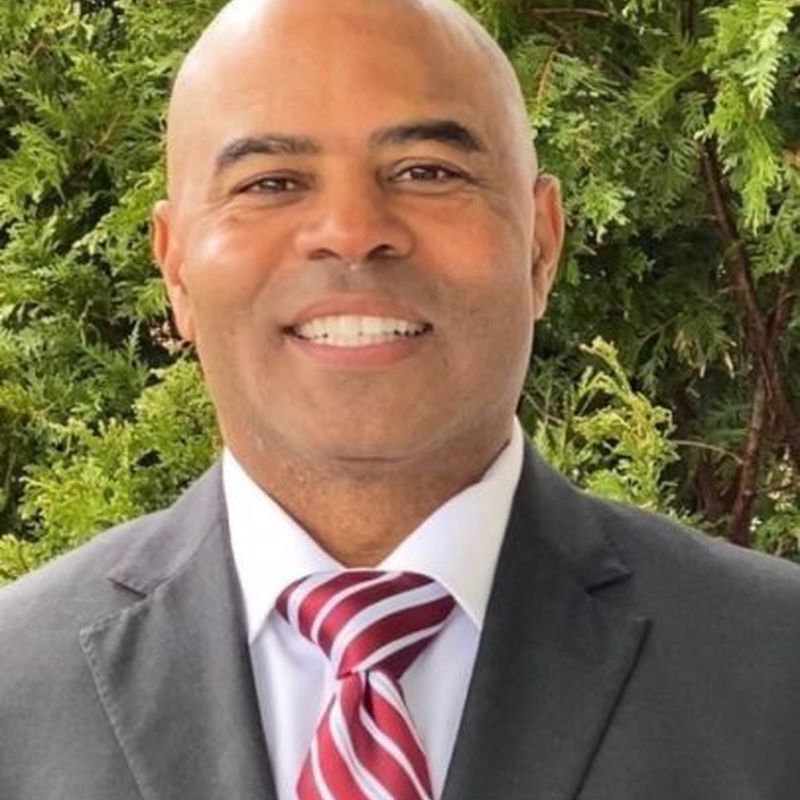
Kip Diggs (D)
Website: http://kipdiggs.com/
1. CAPE COD’S FUTURE. What are the three (3) most pressing issues facing Cape Cod today, and how would you address them if elected?
Wastewater infiltration. Developing a sustainable pipeline of Professional and Skilled jobs for Cape Cod youth. The rising cost of house and lack of housing affordability.
2. ECONOMIC AND WORKFORCE DEVELOPMENT. What is the single biggest opportunity for economic and workforce development on Cape Cod, and how would you leverage it if elected?
Offshore wind and renewable energy that is predicted to add 10,000 local jobs during and after construction. We need real training that is transferable to those jobs.
3. CIVIC ENGAGEMENT. If elected, what specific actions would you take to bring our community’s youth, working age young adults, and young families to the table in regional decision- and policy-making processes? How would you encourage and engage the young people of our community to take on leadership roles with local issues, like economic and workforce development?
Two issues that fold into one: Cape Cod Community College should be free to Cape Cod residents and we should work to make the college a 4-year school. At least on the Mid Cape, that will be a long way to giving our youth a focus for civic engagement.
4. CHALLENGES FOR YOUNG RESIDENTS. CCYP has consistently found through our independent research that young workers on Cape Cod face a number of significant barriers to successfully live and work in the region. The top three challenges that have been identified are: unaffordable and insufficient housing options;a lack of jobs that pay a living wage for our region (i.e., median income for Cape Cod is lower than the state overall, while cost of living is higher);and a lack of investment in infrastructure and services that support year-round quality of life for young people and families (i.e., child care, reliable internet as a public utility, investment in schools/public spaces). What resources or solutions would you propose and/or advocate for to help support young working age adults in these key areas of need?
Higher level of skill training and professional development; training for jobs in offshore wind and renewable energy - to start.
5. AGE-DIVERSE COMMUNITIES. Massachusetts has one of the highest median ages in the country, with Cape Cod/Barnstable County one of the fastest aging regions in the State. The media narrative both locally and nationally is that “young people are fleeing Cape Cod.” However, the demographic changes we are seeing regionally - and their root causes - are much more complex than this. Describe your role as a potential elected official in helping to reshape the Cape’s narrative and cast a vision for our region that attracts and keeps young people on the Cape?If elected, would you advocate for a comprehensive, regional marketing strategy to attract and keep young people on the Cape as other New England states (VT, NH, Maine) have done? What else would you do to ensure that our region prioritizes age-diverse communities?
We don't need a marketing campaign; we need real jobs and the training support to prepare these young people for those jobs in offshore wind, renewable energy, transportation and the services and tourism industry.
3RD BARNSTABLE DISTRICT
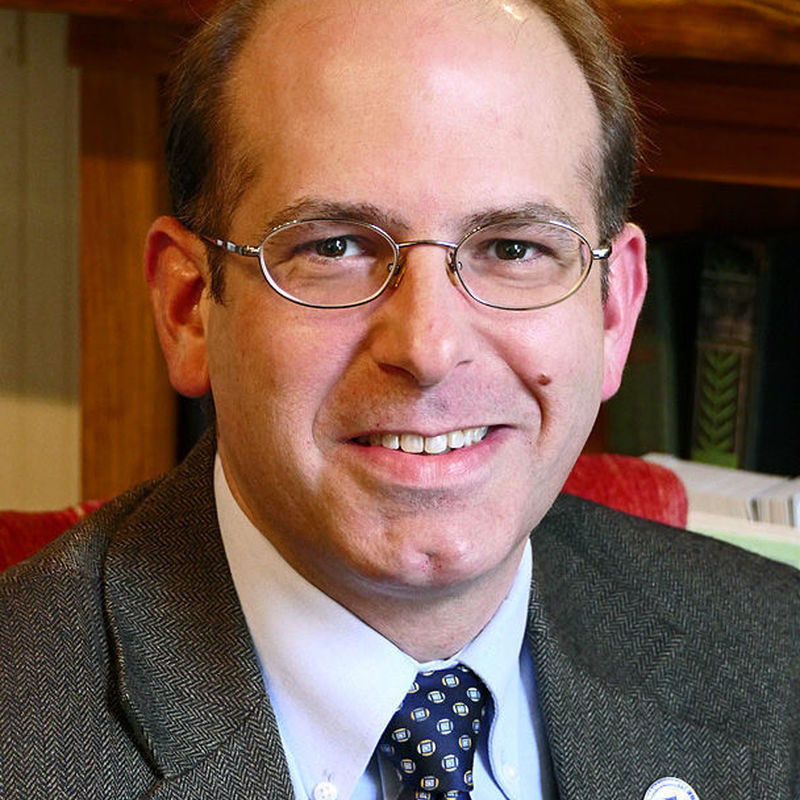
David Vieira (R - Incumbent) - UNOPPOSED
Website: http://www.votevieira.com/
This candidate did not respond to the CCYP Candidate Questionnaire.
4TH BARNSTABLE DISTRICT
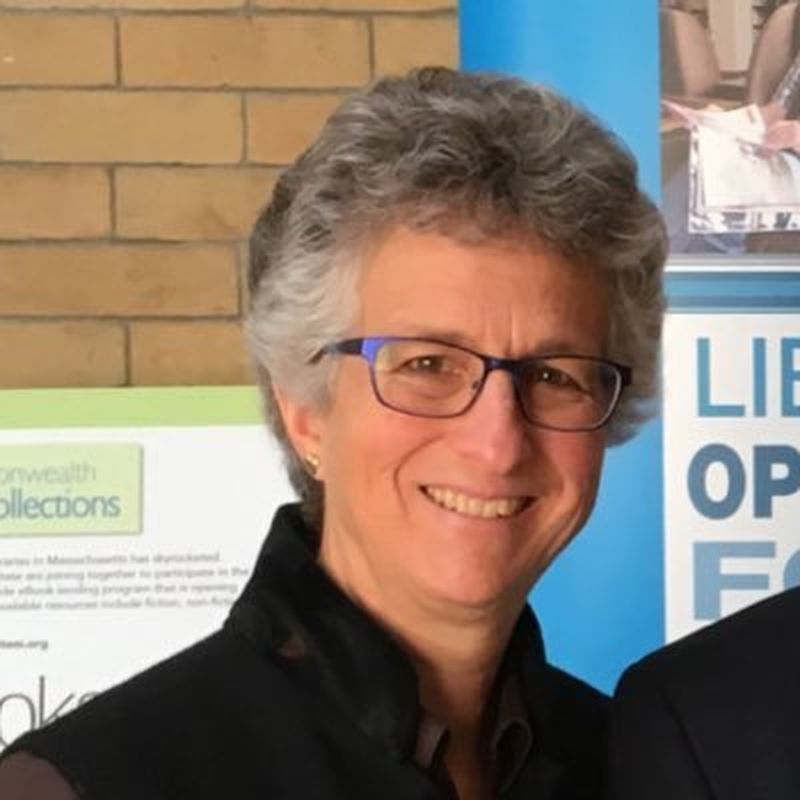
Sarah Peake (D - Incumbent) - UNOPPOSED
Website: https://www.sarahpeake.net/
This candidate did not respond to the CCYP Candidate Questionnaire.
5TH BARNSTABLE DISTRICT
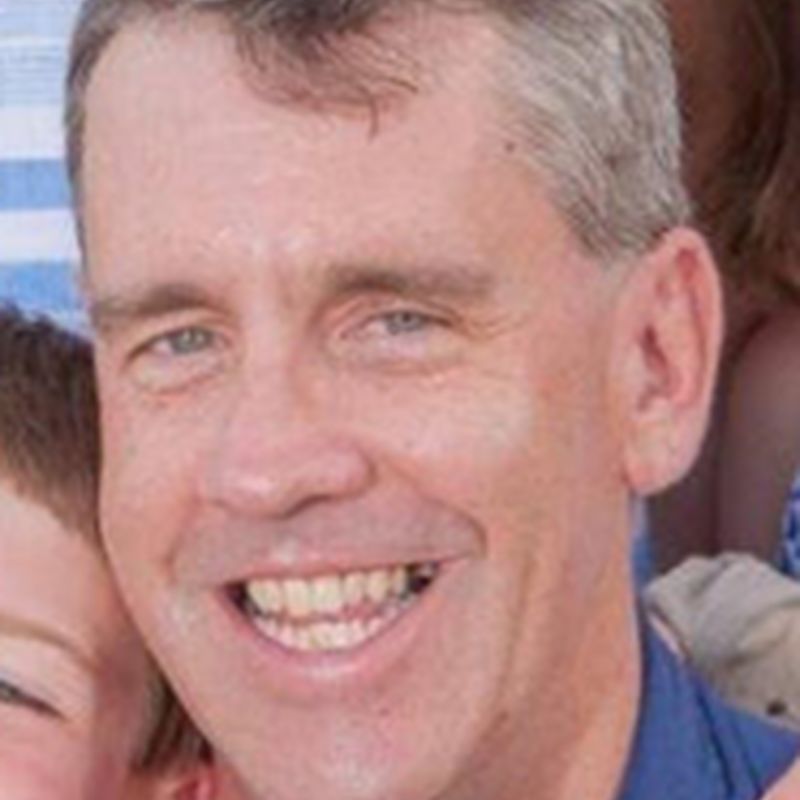
James Dever (D)
Website: http://electjimdever2020.org
Facebook: @JimDeverforStateRep
1. CAPE COD’S FUTURE. What are the three (3) most pressing issues facing Cape Cod today, and how would you address them if elected?
The top three issues I am hearing from voters are: 1) COVID 19; 2) climate change and 3) gender/racial inequality. If elected it will give the Barnstable 5th a voice in the majority for the first time in two decades. It will give me a stronger voice for my constituents, which will help with all of the above concerns. COVID demands the necessary resources are directed back to the district. Another immediate threat to our region is climate change. I will work with the Sierra Club, who endorsed my campaign, to pass legislation to combat climate change, while investing in a “blue economy” for Cape Cod. Gender and racial inequality will be at the front of my legislative goals. Public early childhood education is an often overlooked element of racial and gender inequality. It will no longer be if I am elected.
2. ECONOMIC AND WORKFORCE DEVELOPMENT. What is the single biggest opportunity for economic and workforce development on Cape Cod, and how would you leverage it if elected?
Our potential of a sustainable blue economy, in which we combine climate change technology with the vast resources offered by the waters of Cape Cod can provide jobs in all fields. Ideally, an expansion of Cape Cod Community College in which students can begin studies at the high school level into these fields will provide sustainable jobs upon graduation for our local residents.
3. CIVIC ENGAGEMENT. If elected, what specific actions would you take to bring our community’s youth, working age young adults, and young families to the table in regional decision- and policy-making processes? How would you encourage and engage the young people of our community to take on leadership roles with local issues, like economic and workforce development?
An elected official has an obligation to bring the voices of those represented to Beacon Hill. Community outreach beyond office hours and normal channels will be a necessity. My plan is to put together a Cape Cod for the Future forum to meet on a regular basis. The goal will be to breakdown into smaller issue specific groups to have a laser focus on the root cause of youthful migration from Cape Cod. At this time we need to constantly rely on the energy and ideas generated by those with the most at stake. Instead of waiting for constituents to speak up I want to encourage them to do so, as we need to be partners in creating policy ideas for Beacon Hill Ideas such as, early childhood care, stronger broadband, quality education opportunities and transportation, directly affect the residents in Sandwich, Bourne, Barnstable and Plymouth. All of these are the foundation of economic and workforce development. It is imperative for me to regularly engage with constituents on these, and issues yet to come.
4. CHALLENGES FOR YOUNG RESIDENTS. CCYP has consistently found through our independent research that young workers on Cape Cod face a number of significant barriers to successfully live and work in the region. The top three challenges that have been identified are: unaffordable and insufficient housing options;a lack of jobs that pay a living wage for our region (i.e., median income for Cape Cod is lower than the state overall, while cost of living is higher);and a lack of investment in infrastructure and services that support year-round quality of life for young people and families (i.e., child care, reliable internet as a public utility, investment in schools/public spaces). What resources or solutions would you propose and/or advocate for to help support young working age adults in these key areas of need?
As mentioned above, early childhood which not only benefits the child, but also supports young working families. Public education at all levels will be a hallmark of our campaign. If elected, I will do my best to ensure the Massachusetts Department of Early Education and Care has the resources it needs, and is spending them wisely. The issue is critically important as well to help alleviate gender and racial inequality. My career as a labor lawyer defending workers of this, and all Massachusetts agencies, provides an acute awareness of the need for legislation impacting pay and work equity, along with workplace safety. Issues of pay equity must remain at the forefront of our discussions if we are to keep young people on Cape Cod. If we can bring stronger broadband to the region it will make the area more attractive for the new telework economy, which means jobs. We also must move forward with an economy, which is blue and green, developing regional programs, incentives and environmentally sound policy. Our region must be a leader in alternative energy production, maritime protection and the sustainable jobs of the future by investing in an environmentally sound economy. If we can harness Cape Cod’s natural resources, with the knowledge of our best and brightest of this generation, we will be able to create jobs. I am aware of the need of not only housing for future jobs, but right now. We need more affordable housing, which I will address head-on if elected. I’ve tackled the hard issues as a labor lawyer and a six year member of the Sandwich School Committee. The plan is the same, immerse myself in the issue until it is solved. A key will be to encourage regional awareness of these issues and forums in which to discuss solutions. Finally, I’m bullish on public education, at all levels, and will fight for proper funding of our public schools. I’ve had a front row seat at school budget time watching level services cut very year. It must stop.
5. AGE-DIVERSE COMMUNITIES. Massachusetts has one of the highest median ages in the country, with Cape Cod/Barnstable County one of the fastest aging regions in the State. The media narrative both locally and nationally is that “young people are fleeing Cape Cod.” However, the demographic changes we are seeing regionally - and their root causes - are much more complex than this. Describe your role as a potential elected official in helping to reshape the Cape’s narrative and cast a vision for our region that attracts and keeps young people on the Cape? If elected, would you advocate for a comprehensive, regional marketing strategy to attract and keep young people on the Cape as other New England states (VT, NH, Maine) have done? What else would you do to ensure that our region prioritizes age-diverse communities?
All of the above steps are ways in which the region can hold on to its youthful population, while giving a heads-up to the generation that follows. I know this constantly involves community discussions and decision making about resource management. Age diverse communities naturally occur but how we work together and solve our problems together, how we accept the ideas from all parties melding those ideas into a community plan is the key. As part of my outreach approach I want to emphasis opportunities for our aging population to work with our younger population to address our needs. Age diversity is a strength once it is recognized as such, which I will champion for our region.
By investing in early childhood care, young families will be able to work in the region, while their children are cared for in a healthy environment. An investment in broadband will give those young families a chance to work in fields providing the broadband, and those who benefit from it. Ideally, we invest fully in a blue/green economy, to protect our region’s beauty and sustaining its inhabitants. As a recent six year school committee member for Sandwich, I’ve had a front row seat to the development of our youth. I’m bullish on our youth and am going to fight to give them the tools they need to succeed right here on Cape Cod. These success, plus Cape Cod’s natural beauty will fit perfectly into a regional marketing strategy to attract those who see our region not just as tourism, but a home to raise a family.
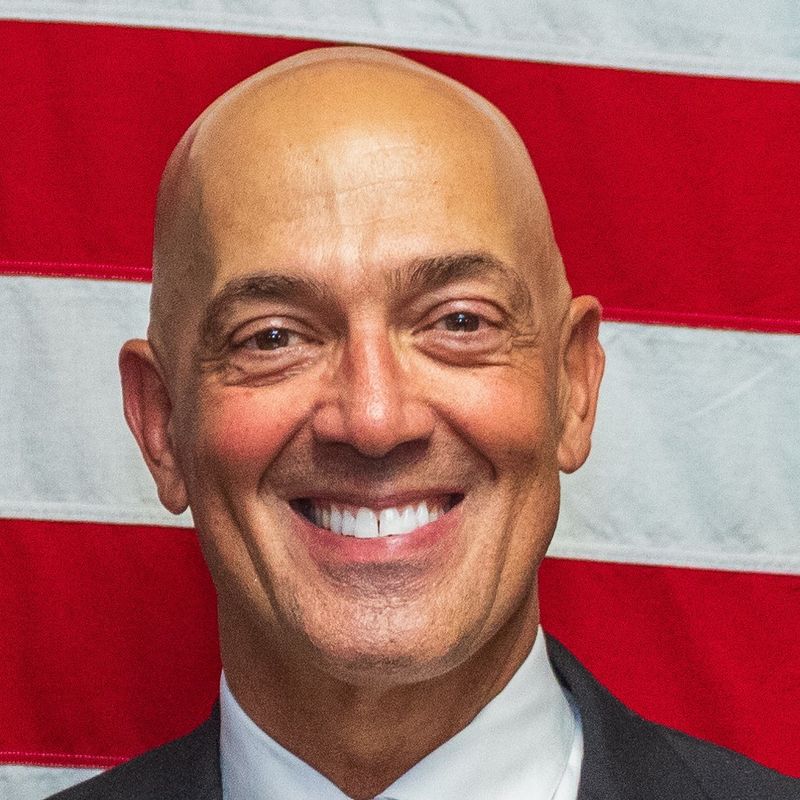
Steven Xiarhos (R)
Website: http://xiarhosforrep.com/
Facebook: @xiarhosforrep
Instagram: @xiarhosforrep
1. CAPE COD’S FUTURE. What are the three (3) most pressing issues facing Cape Cod today, and how would you address them if elected?
I am running to make Cape Cod a better place to live and work. As a former Deputy Police Chief, I am committed to enhancing public safety. I am a firm supporter of first responders, and I will work hard to pass legislation that is tough on violent criminals and drug dealers. I will also support Cape Cod's economy, particularly by helping small businesses thrive and working to reopen our economy. And, as a former School Resource Officer, I will work hard to support education across our state. I am also committed to helping seniors and veterans in need of assistance.
2. ECONOMIC AND WORKFORCE DEVELOPMENT. What is the single biggest opportunity for economic and workforce development on Cape Cod, and how would you leverage it if elected?
I believe the best opportunity for economic development right now is to reopen our economy as quickly and safely as possible following COVID-19 closures, and to allow our business community (and particularly our small businesses) to get back to work. Our businesses know how to create jobs and grow our economy, we mostly need to get out of their way and let them do what they do best.
3. CIVIC ENGAGEMENT. If elected, what specific actions would you take to bring our community’s youth, working age young adults, and young families to the table in regional decision- and policy-making processes? How would you encourage and engage the young people of our community to take on leadership roles with local issues, like economic and workforce development?
As a former School Resource Officer, I have experience working with teachers, students, and parents on difficult education issues. I know how to bring people together and reach consensus on controversial points. And, as a former police officer, I have experience building coalitions and trusted relationships within the community. It's one of my best strengths, and I believe as a State Representative I can provide leadership to help people come together on important issues.
4. CHALLENGES FOR YOUNG RESIDENTS. CCYP has consistently found through our independent research that young workers on Cape Cod face a number of significant barriers to successfully live and work in the region. The top three challenges that have been identified are: unaffordable and insufficient housing options;a lack of jobs that pay a living wage for our region (i.e., median income for Cape Cod is lower than the state overall, while cost of living is higher); and a lack of investment in infrastructure and services that support year-round quality of life for young people and families (i.e., child care, reliable internet as a public utility, investment in schools/public spaces). What resources or solutions would you propose and/or advocate for to help support young working age adults in these key areas of need?
I believe providing young people with a quality education is the most essential tool to help prepare them for a successful future. That is an obligation we have to the next generation, and I will work hard to support education in our district. We also need to make sure that once students graduate, there are adequate job opportunities available for them to pursue. I believe that is a function of reopening our economy and making sure businesses can operate freely to create jobs, thrive and expand.
5. AGE-DIVERSE COMMUNITIES. Massachusetts has one of the highest median ages in the country, with Cape Cod/Barnstable County one of the fastest aging regions in the State. The media narrative both locally and nationally is that “young people are fleeing Cape Cod.” However, the demographic changes we are seeing regionally - and their root causes - are much more complex than this. Describe your role as a potential elected official in helping to reshape the Cape’s narrative and cast a vision for our region that attracts and keeps young people on the Cape? If elected, would you advocate for a comprehensive, regional marketing strategy to attract and keep young people on the Cape as other New England states (VT, NH, Maine) have done? What else would you do to ensure that our region prioritizes age-diverse communities
As an elected official, my job is to promote policies that will improve the lives of people who live and work on Cape Cod. For young people, that starts with providing a quality education. Then, it involves promoting policies that help businesses grow jobs here and providing employment opportunities. We also need to keep Cape Cod an affordable place to live. As a State Rep, one way to do that is to support our communities with local aid to help take pressure off the local tax base to fund essential services.
BARNSTABLE, DUKES, AND NANTUCKET DISTRICT

Dylan Fernandes (D - Incumbent) - UNOPPOSED
Website: http://www.dylanfernandes.com/
This candidate did not respond to the CCYP Candidate Questionnaire.